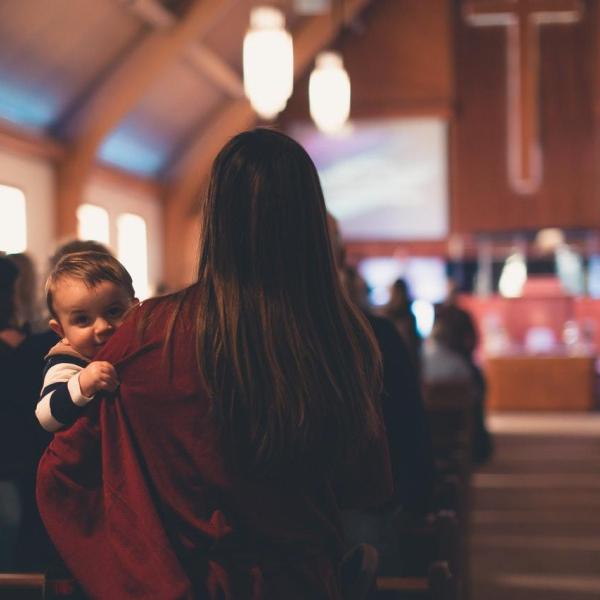Five ways to support families at Christmas
Christmas can be full of joy and festive fun, but also brings challenges.
We love to hear how so many individuals, small groups and churches are doing so much to better support foster and adoptive families and those who are supported lodgings hosts – barely a week goes past without us hearing another great story or having another church commit to becoming more welcome and to feeling safer.
We’ve shared ideas for how to generally support families who care for care-experienced children and teenagers, but we realised that this time of year presents a fresh set of challenges for families.
While Christmas can be full of joy and festive fun, it brings with it a lot of expectation, tradition, preconception, and emotion – all of which can be particularly difficult for children with lived experience of care to navigate.
Take a little time to consider these five things, to help all of us be more aware and better prepared to support families in our communities.
1) Christmas can be overwhelming
The excitement, the emotion, the decorations, the presents, the chocolate, the noise – the complete lack of normal routine and structure – can become too much for any child.
Many children who have experienced trauma in their early years can experice challenges with sensory processing; others might feel unsettled when their routines change or they’re not in familiar spaces. Over Christmas, they are likely to need regular periods of downtime and plenty of reassurance and explanation.
2) Christmas emphasises family – and that’s not always easy
Children who don't live with their birth family may feel pulled between two families, and this can be particularly felt at Christmas. Even children who have experienced neglect or abuse may still feel a connection to their birth family and love their birth parents, so to not be with them at Christmas is very hard.
Children in foster care are unlikely to have contact on Christmas day and some children will struggle with this. Sometimes children have extra contact sessions around Christmas, which often come with added expectations from children or birth family, and these are not always met.
3) A visit from Father Christmas isn’t appropriate for all children
While the idea of Santa Claus is deeply entrenched in our Christmas culture, there are a number of aspects that could be difficult for children – and potentially even scary. Ultimately, he is a stranger that comes into the house at night, or even into a child’s bedroom. The idea of the ‘nice list’ and the question of ‘naughty and nice’ is also not particularly helpful when some children have significant self-esteem issues or struggle with rejection, or when behaviours relate to what a child has experienced or what they're feeling and communicating.
Some carers and parents will do things differently, perhaps telling the children that Father Christmas will leave their stockings outside or in the garage, or that the parent/carer will meet Santa to collect the presents, and most will choose not to endorse the naughty/nice paradigm.
4) Some children will not have positive Christmas memories
Sadly, social services often experience a very busy festive period. We have heard many stories of children arriving with foster carers close to Christmas because they are not able to remain with their birth family, for a wide variety of reasons. Further, whether or not they came into care around Christmas, children who are able to remember are likely to have mixed memories of previous years.
Other children may have little experience of Christmas, and may not understand or know about various traditions like stockings, Christmas dinner, or the nativity story.
5) Christmas can be tough on parents and carers
For many reasons, this can be painful time of year for many people, and foster carers, adoptive parents and supported lodgings hosts are no exception. Remembering children they have previously cared for, reflecting on the past year, caring for children who are struggling, can make Christmas especially hard. You can be a great support to them by offering a word of comfort, a listening ear, or sometimes just a hug makes all the difference.
Keep inviting parents, carers and families to things, but understand they may not always be able to engage. Ask for advice if you want to give children Christmas presents, and don’t assume that children will understand things or behave a certain way.
By being aware of these five things you will be a real encouragement to foster and adoptive families. Let parents and carers guide the plans, as they know best what and how much their children can manage. Seek to understand how they need to do things, and always try to be open, adaptable and flexible – both around Christmas and throughout the year.
Thank you so much for all you are doing and all you seek to do to better support all families who love and raise children and young people with care experience.
You might also be interested in

Articles
Reflecting on Good Friday
Despite the outward appearance of a crushing setback, Good Friday was a day of triumph, unveiling God's divine plan and the true nature of his reign.
Read more
Articles
The Church: a community of shared light
Our Northern Ireland and Nations’ Lead, Roger Cooke shares some reflections on fire, community and the Olympic Games.
Read moreI would like to find out what is
going on in my area







